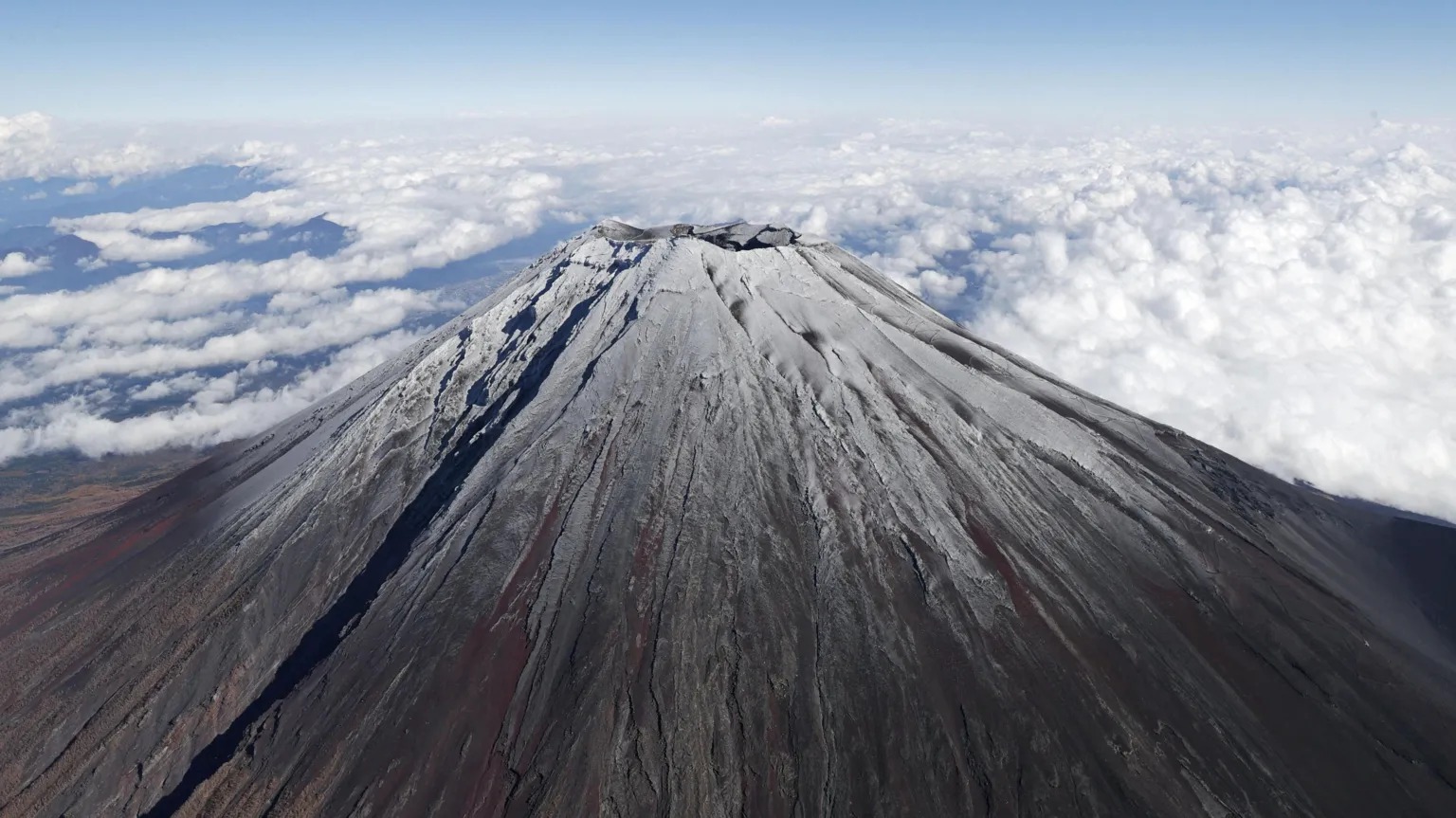
Snow Returns to Mount Fuji After Record Delay
Snow returns to Mount Fuji after the longest delay in over 130 years, with the first sighting confirmed on November 6. This rare delay follows Japan’s hottest summer, as temperatures remained unusually high well into autumn. Mount Fuji, Japan’s tallest and most beloved peak, typically sees snowfall much earlier, making this first snow an eagerly awaited sight for locals and tourists alike.
Mount Fuji is an iconic part of Japan’s landscape, renowned worldwide for its beauty and cultural significance. News of the snow spread quickly, with locals celebrating and sharing images of the snowy peak online.
Delayed Snowfall on Mount Fuji: A Historic Event
This record-breaking delay marks the latest arrival of snow on Mount Fuji, with past records showing the previous latest date as October 26 in both 1955 and 2016. The Japan Meteorological Agency’s Kofu branch confirmed the snow sighting a day after it was first spotted, due to clouds obstructing their view initially.
One user shared on X, “I’ve never been so excited for the first snowfall this year,” echoing the sentiment felt by many awaiting Mount Fuji’s snow-capped return. Another commented, “Finally… the mountain looks beautiful again with snow,” celebrating the iconic view that has inspired Japanese art and literature for centuries.
External Link: More on Japan’s environmental changes at BBC
Internal Link: Discover Japan’s natural wonders at Kenkou Land
Japan’s Hottest Summer Impacts Mount Fuji’s Snowfall
Japan recently endured one of its hottest summers on record, with temperatures from June through August averaging 1.76°C (3.1°F) above normal. This warmth extended into September, delaying the snowfall on Mount Fuji. While it’s difficult to link this directly to climate change, experts note that such patterns align with a warming global climate.
Located southwest of Tokyo, Mount Fuji typically presents a snowy peak that can be seen from the capital on clear days. This unusual delay has stirred concern, especially as it marks a significant departure from typical seasonal changes at the mountain.
Snow’s Return Brings Hope and Reflection
Now that snow has returned to Mount Fuji, locals and tourists alike are celebrating this iconic view, which signals the transition into Japan’s cooler season. However, this delay has prompted reflection on how climate change might affect natural landmarks like Mount Fuji. As an internationally recognized site, Mount Fuji’s seasonal transformations hold significance for both local pride and global tourism.
This first snowfall renews the mountain’s attraction, drawing visitors eager to experience its winter beauty. Mount Fuji stands as a national symbol, and this year’s late snow adds a unique chapter to its rich history.






